The department is proud to feature accomplished alumni who have entered a variety of fields across academia, the private sector, and the public sector. If you are ever interested in reaching out to Brown Economics Alumni, use BrownConnect.
Alumni
Alumni
Read about the experiences of some Brown Economics alumni.
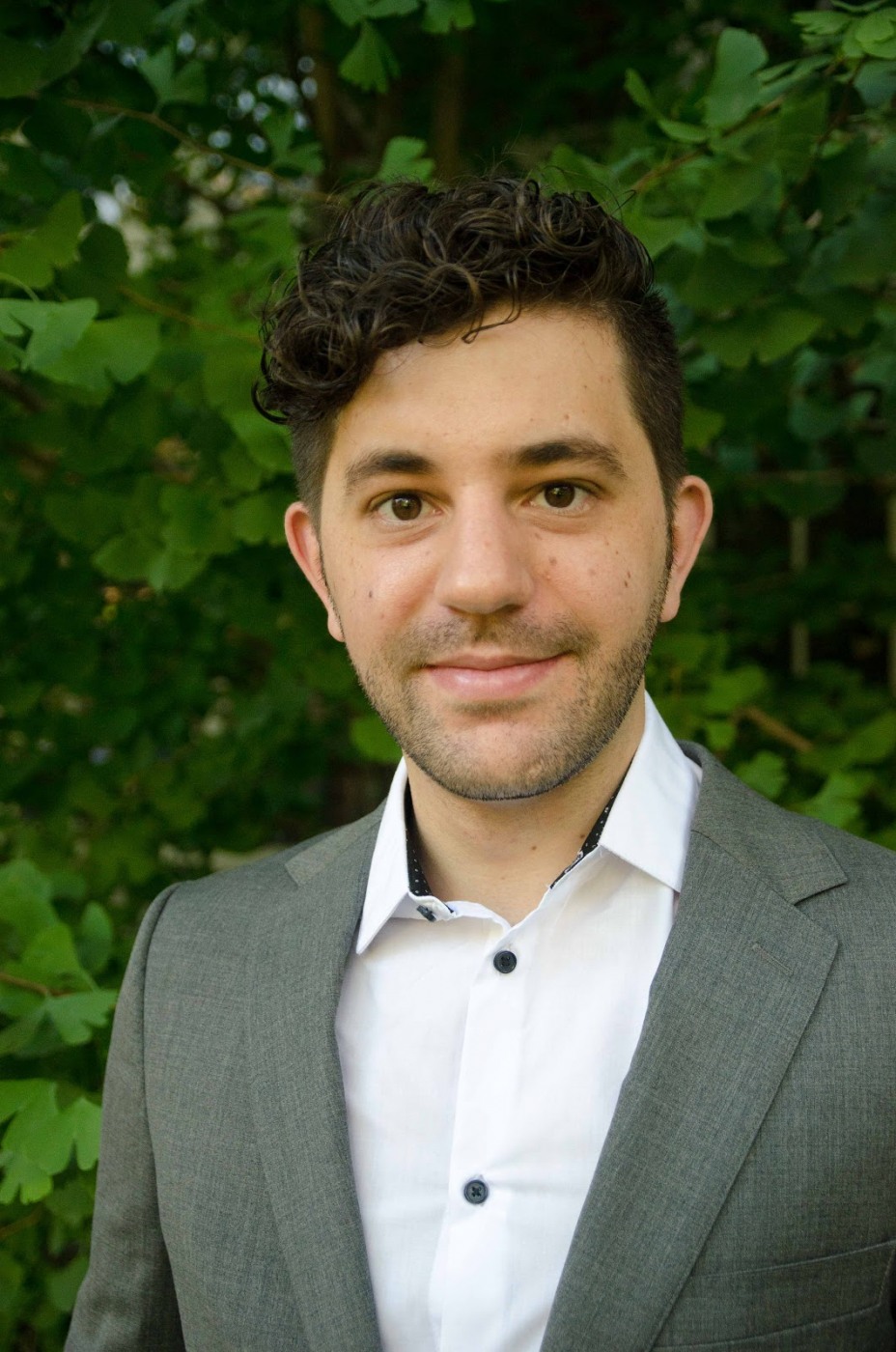
What year did you graduate from Brown? Were you an undergraduate or graduate student?
I graduated in 2018, PhD
Why did you choose to study economics?
I found the mathematical and statistical rigor to answer social science questions very appealing. I think the Econ framework for thinking about problems is intuitive and can be applied to many different settings.
What were your favorite courses in economics at Brown?
Health with Anna Aizer, Labor and Population with Ken Chay, the Development Economics sequence
What is your current position?
Assistant Professor, ITAM Business School, Mexico.
How did your experience at Brown help you in your career?
Rigorous training helped me get an academic job; keeping in touch with Brown faculty has been important for navigating life as an Assistant Prof, in particular the publishing process. I'm also working on a few projects with Brown alumni that I met during my time there.
Almudena Sevilla earned her PhD in Economics from Brown University in 2004 and has become a leading voice in gender economics. Her groundbreaking research focuses on how policies like pay transparency and anti-harassment laws can improve talent allocation, boost productivity, and support sustainable growth.
Now a distinguished economist at the London School of Economics and Political Science (LSE), Professor Sevilla has been named a Commander of the Order of the British Empire (CBE) in the United Kingdom's 2025 New Year Honours List. This prestigious award, presented by King Charles III, recognizes her outstanding contributions to economics and her work advancing the role of women in the field. She will officially receive the honor at a ceremony at Buckingham Palace.
Prof. Sevilla’s research is regularly published in leading international journals and has earned her several major accolades, including a European Research Council Consolidator Grant worth over £1.5 million and the Marie J. Langlois Prize for her doctoral work. Beyond her research, she is a passionate advocate for women in economics. She founded and chairs the UK Women in Economics Network (UK WEN), which provides mentorship and networking opportunities for women across academia, government, and industry. She also leads the LSE Women in Social and Public Policy Research Hub (WISPPRH) and is a member of the steering committee for the Economics of Diversity, Gender, and Equality (EDGE) Network.
.jpg) Aly Migliori is a Film Director and Cinematographer and the Co-Founder of First Hunt Films in New York City. At Brown, she concentrated in both Economics and honors in Modern Culture & Media. The dual nature of her coursework helped prepare her for a career in film by teaching both soft and hard skills, as well as how to be an entrepreneur. For Migliori, the two areas of study paired well together because she learned about both global macroeconomic issues and the global media landscape. Within Economics, she learned not only how to be keenly analytical, but also how to take a step back and abstract the world in accordance to theoretical models. Her favorite courses included International Finance and Welfare State with the late Professor George Borts. Migliori praised his sincere willingness to engage in deeper discussions and highlighted that Borts was the first professor to bridge the gap between academic economics and current issues during her undergraduate studies.
Aly Migliori is a Film Director and Cinematographer and the Co-Founder of First Hunt Films in New York City. At Brown, she concentrated in both Economics and honors in Modern Culture & Media. The dual nature of her coursework helped prepare her for a career in film by teaching both soft and hard skills, as well as how to be an entrepreneur. For Migliori, the two areas of study paired well together because she learned about both global macroeconomic issues and the global media landscape. Within Economics, she learned not only how to be keenly analytical, but also how to take a step back and abstract the world in accordance to theoretical models. Her favorite courses included International Finance and Welfare State with the late Professor George Borts. Migliori praised his sincere willingness to engage in deeper discussions and highlighted that Borts was the first professor to bridge the gap between academic economics and current issues during her undergraduate studies.
Migliori describes how each new film is akin to starting a small company, and her prior economics coursework about risk and rationality influenced her entrepreneurship. Migliori reflects that her studies in Economics drove her confidence to drive her career and invest in her work. Migliori was initially drawn to Brown in part by the impressive alumni network; the strength of these ties was proven in her own career. First Hunt Films was founded when Migliori was only 24 years old. In 2019, her film, “Twist” was selected for the Tribeca Film Festival in New York City and her film After Her premiered online to over 400K views on the DUST Youtube Channel.
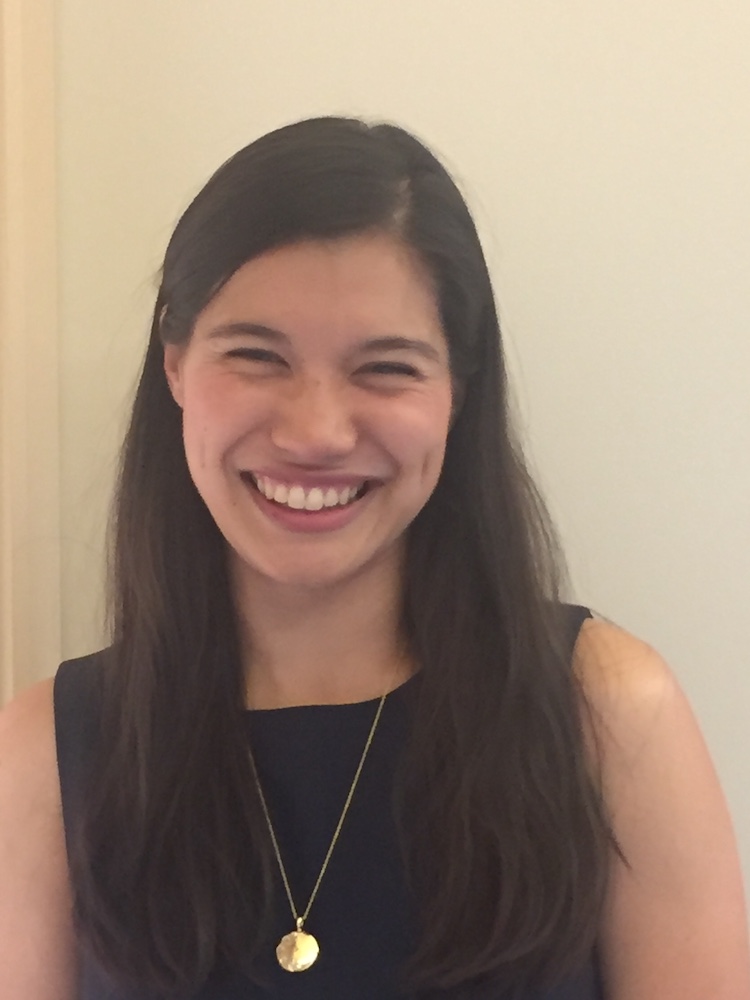 Andrea Matthews graduated from Brown in 2011, double-concentrating in Economics and Public Policy, and graduated from Harvard Law School in 2015.
Andrea Matthews graduated from Brown in 2011, double-concentrating in Economics and Public Policy, and graduated from Harvard Law School in 2015.
Matthews initially wanted to study Economics because she came to Brown with the intent to develop skills she could use to make the world a better place. She recognized that a keen understanding of economics would be a critical tool to affect positive change. Matthews reflected upon how impactful it was to witness the 2008 financial crisis while she was an undergraduate at Brown. She recalls how Ross Levine’s Financial Institutions course and his book, Rethinking Bank Regulation: Till Angels Govern, helped her understand the state of financial regulation. Consequently, the course compelled her to examine what regulation should look like going forward.
Some of Matthews’s other favorite courses included Health, Hunger, and the Household and Public Economics, the latter of which was taught by Professor Brian Knight. Matthews appreciated Professor Knight’s generosity in taking the extra time to help nurture students’ individual curiosity. Matthews wrote her honors senior thesis in the Public Policy department on juvenile and incarcerated young adults; however, the topic itself was inspired by Professor Anna Aizer, who was Matthews’s first reader. Matthews praised the thoughtful but straightforward guidance from Professor Aizer, who helped Matthews devise an instrumental variable analysis for the quantitative aspect of the research.
In her professional career, Matthews continued to apply the research methodologies and approaches she learned from Economics at Brown. After graduation, Matthews worked at a think tank dedicated to social and economic policy, where she focused on local criminal justice systems and policing. Additionally, she earned her J.D. at Harvard Law School, where she realized that there were pressing issues not only in the criminal justice system, but also in the civil justice system. At Harvard, she was involved in research that conducted randomized control trials in legal services. Matthews wrote several papers on this topic, bringing the rigor of quantitative evaluation to questions of legal judgment. After law school, Matthews joined the Consumer Financial Protection Bureau (CFPB), a government agency in charge of regulating consumer financial products & services including debit cards, mortgages, and other loans. Currently, Matthews works at the CFPB as a Senior Counsel for Litigation. Her undergraduate studies in both Economics and Public Policy laid a strong foundation to build the proper analytical and communication skills needed to tackle challenging problems in her work.
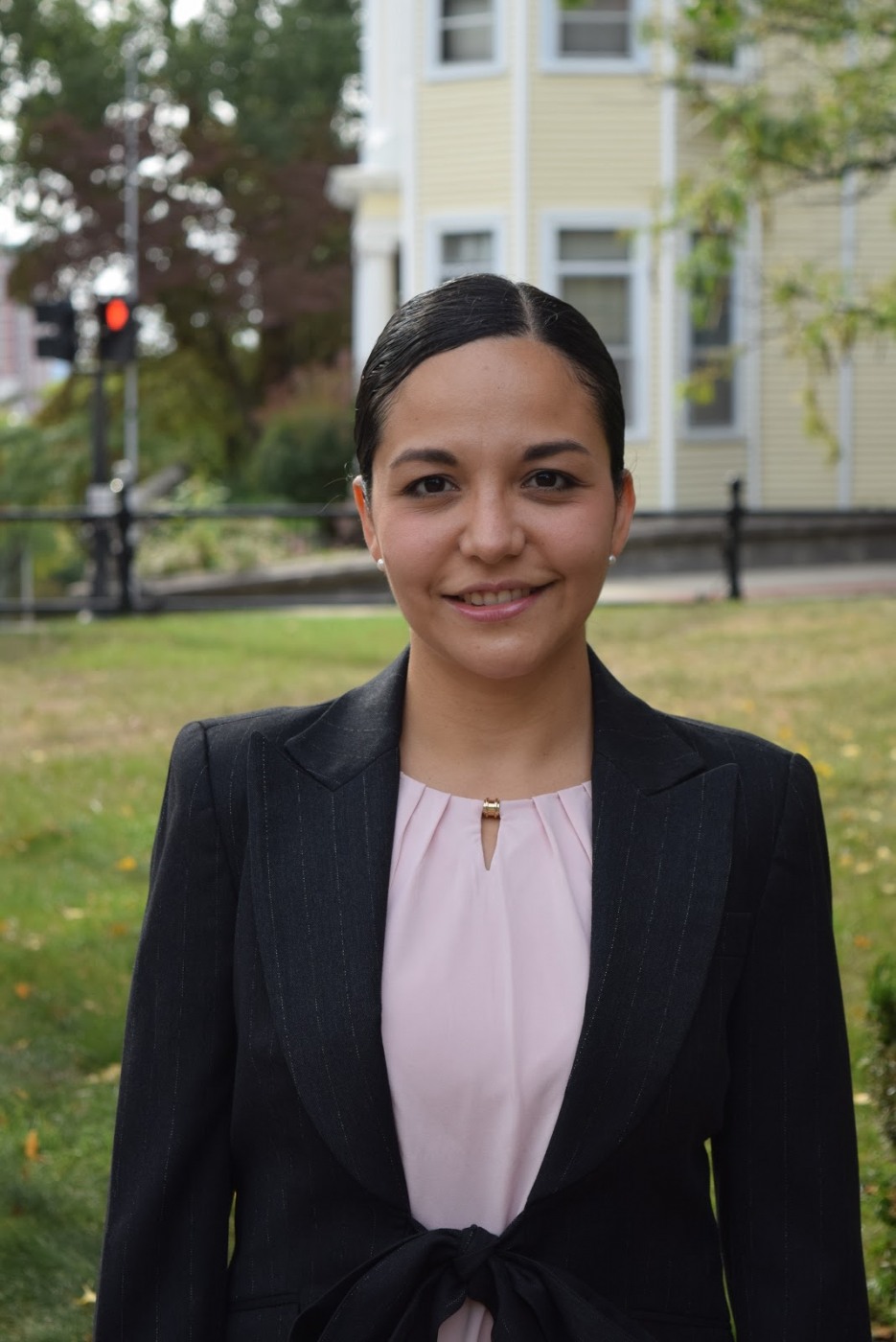
What year did you graduate from Brown? Were you an undergraduate or graduate student?
I obtained my Ph.D. from Brown in 2017
Why did you choose to study economics?
I decided to study economics because I think that through it, I can apply knowledge to produce socially valuable results. Throughout my studies, and to my delight, I found that economic methods can be used to shed light on diverse problems such as inequality, political participation, causes of crime, among others. These aspects, together with my enthusiasm to keep learning and researching, motivated me to pursue a Ph.D. in Economics at Brown.
What were your favorite courses in economics at Brown?
I enjoyed the courses in Public Economics with Professor Brian Knight and Labor Economics with Professor Ken Chay.
What is your current position?
Assistant Professor at El Colegio de México.
How did your experience at Brown help you in your career?
My Ph.D. at Brown provided me with the analytical tools to work in academic research. The close interaction with faculty members at seminars and educational spaces such as breakfasts was crucial in shaping and developing my research skills. Moreover, I greatly benefited from the department's support during my Ph.D. and the job market.
_0.png) Daniel Prinz grew up in Budapest, Hungary and attended an international high school in Wales on a merit scholarship. For Prinz, the two distinguishing features of Brown were the Open Curriculum and the accessibility of professors. Prinz knew he wanted to concentrate in Economics because the field provides a unique and rigorous framework for analyzing policies in many different areas.
Daniel Prinz grew up in Budapest, Hungary and attended an international high school in Wales on a merit scholarship. For Prinz, the two distinguishing features of Brown were the Open Curriculum and the accessibility of professors. Prinz knew he wanted to concentrate in Economics because the field provides a unique and rigorous framework for analyzing policies in many different areas.
At Brown, he was able to dive deep into his primary area of study and still explore other interests. Prinz took seventeen courses in economics and six courses in mathematics, as well as several classes in philosophy and political science. Beginning in his sophomore year through graduation, Prinz worked as an undergraduate research assistant during the academic years and summers and ultimately developed close relationships with several professors. His favorite class was Economic Growth with Professor David Weil, who Prinz noted was a fantastic lecturer. Prinz went on to assist Weil in numerous research projects, including new edition of Weil’s textbook and took Weil’s graduate-level course.
Prinz’s positive undergraduate research experiences with numerous professors at Brown critically influenced his decision to pursue a career as an economist. He spent two and a half years as a research assistant at the National Bureau of Economic Research (NBER), earning a Pre-Doctoral Fellowship in Disability Policy Research. Prinz completed his Ph.D. program at Harvard University in the studies of Health Policy and Economics. His research focused on social insurance programs like Medicare, Medicaid, and disability insurance, with an eye towards equity, efficiency, and fiscal sustainability. He now works an Economist in the World Bank's Middle East and North Africa Economic Policy team, where he primarily works on Algeria and Morocco. He is also a Research Associate at the Institute for Fiscal Studies and the Eötvös Loránd University Centre for Economic and Regional Studies Institute of Economics.
.jpg)
What year did you graduate from Brown? Were you an undergraduate or graduate student?
I graduated from Brown in 2019 with a Ph.D in Economics.
Why did you choose to study economics?
I had always been interested in (Applied) Mathematics, but with a focus on applications. I realized that Economics (and in particular Econometrics, my research area) provides a host of very complex yet highly relevant and important problems about human interactions which often requires novel approaches. Moreover, Economics is highly permeable to new ideas and concepts that are useful to this analysis, which---from a more mundane perspective---makes it a perfect playing field for trying new things and approaches.
What were your favorite courses in economics at Brown?
I was lucky, because during my time at Brown we had 5 world-class econometricians: Susanne Schennach (my advisor), Eric Renault, Adam McCloskey, Frank Kleibergen, and Andriy Norets. I really enjoyed all of the econometrics classes, it is quite surreal to learn new concepts from the person that invented them. In addition I took one applied class, Labor and Health Economics, which---and I hope my econometrics teachers will forgive me for this---was the best class I had taken in Brown's econ department. What is your current position? Visiting Postdoctoral Associate (with teaching obligations) at MIT, Assistant Professor of Economics at the University of Michigan.
How did your experience at Brown help you in your career?
I am still grateful that Brown actually took me as a PhD student, as I have a "non-standard" background. I studied Management, Philosophy, and Economics at a German Business School, the "Frankfurt School of Finance and Management", and I had been told by my undergraduate advisors that it was basically impossible to get into a top PhD program in Economics in the US with my background. Brown took a chance with me, and I will always be grateful for this.
At Brown, I quickly realized that my interests aligned almost perfectly with those of Susanne Schennach, who eventually agreed to become my advisor. I can honestly say that Susanne has been a perfect advisor for me. She gave me all the freedom I wanted/needed to develop my own interests, but always made sure that I didn't lose focus. I owe her a lot and still cannot believe deep down that someone this brilliant is my advisor.
Brown in general has been very good to me over those 6 years: the funding was good, I never needed to worry about not having enough money at the end of the month; the seminars were awesome, with good speakers; every faculty member I interacted with was supportive, listening to research ideas or just general worries of a graduate student. And finally, I had such a great time at Brown because of my student colleagues, who all became close friends.
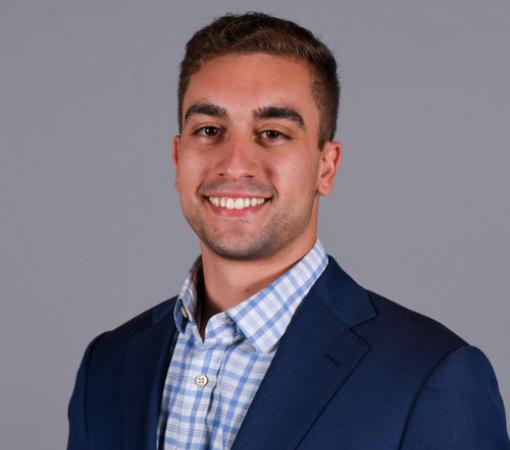 Jake Levine was initially recruited to play baseball at Brown, but he ultimately chose the school for the Open Curriculum, diverse community, and genuinely happy environment on College Hill. From early on, Levine gravitated towards Economics because of the quantitative approach to solving social issues and the “let the data talk” mentality. A pivotal point for Levine in his studies was Applied Research Methods with Rachel Friedberg, where he learned how to separate correlation from causation and how to develop a statistical approach to answering difficult questions. Levine also had strong interests in Public Policy and took several policy-oriented elective courses, applying the economist mindset and econometrics toolkit to analyze the social and policy issues he cared about most. His favorite electives were Economics of Mass Media with Professor Jesse Shapiro, Economics of Education with Professor John Tyler, and Health, Education, and Social Policy with Assistant Professor Bryce Steinberg.
Jake Levine was initially recruited to play baseball at Brown, but he ultimately chose the school for the Open Curriculum, diverse community, and genuinely happy environment on College Hill. From early on, Levine gravitated towards Economics because of the quantitative approach to solving social issues and the “let the data talk” mentality. A pivotal point for Levine in his studies was Applied Research Methods with Rachel Friedberg, where he learned how to separate correlation from causation and how to develop a statistical approach to answering difficult questions. Levine also had strong interests in Public Policy and took several policy-oriented elective courses, applying the economist mindset and econometrics toolkit to analyze the social and policy issues he cared about most. His favorite electives were Economics of Mass Media with Professor Jesse Shapiro, Economics of Education with Professor John Tyler, and Health, Education, and Social Policy with Assistant Professor Bryce Steinberg.
Levine worked as a Senior Business Analyst in the Business Analytics division for the Miami Dolphins. Levine spent his first two years after graduation in consulting at EY-Parthenon with the goal of learning broadly about business strategy. In his role with the Dolphins, he used both a strategic and data-driven mindset to help the Miami Dolphins make business decisions related to ticket sales, sponsorship, merchandise, and concessions. Additionally, he advised other clients of the Hard Rock Stadium such as the University of Miami, entertainment groups, international soccer clubs, and the Miami Open tennis tournament.
Currently, Levine works as a Principal for the Global Integrated Go-to-Market for Converse. Levine’s studies in Economics at Brown helped to lay the foundation for his professional life. Levine utilizes an economist’s way of thinking every day, from identifying causal relationships to develop business strategies to using statistical methods to analyze business operations.
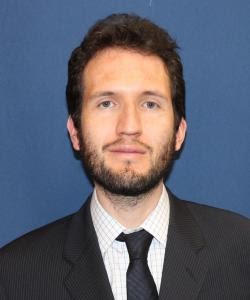
What year did you graduate from Brown? Were you an undergraduate or graduate student?
I graduated with my Ph.D. in 2018.
Why did you choose to study economics?
I was fascinated by social phenomena when I was in high school. I liked how economics approaches these phenomena using tools from statistics, mathematics and social sciences. After doing my undergrad in Economics in Colombia and working in economic policy, I decided to pursue a Ph.D. at Brown.
What were your favorite courses in economics at Brown?
I enjoyed the courses in Urban Economics with Professors Baum-Snow and Turner, the Economic Growth class with Professor Galor and the Microeconomics course with Professor Serrano. I ended up specializing in Urban Economics.
What is your current position?
Research Economist at Central Bank of Mexico
How did your experience at Brown help you in your career?
My Ph.D. at Brown was extremely helpful in shaping my interests and providing the tools I needed to work in economic research and economic policy. Brown's Ph.D. in Economics program was excellent in terms of breadth and quality and prepared me to address economic policy questions with a critical eye and with the right methods. I greatly benefited from the advice from faculty members and from the department's support.
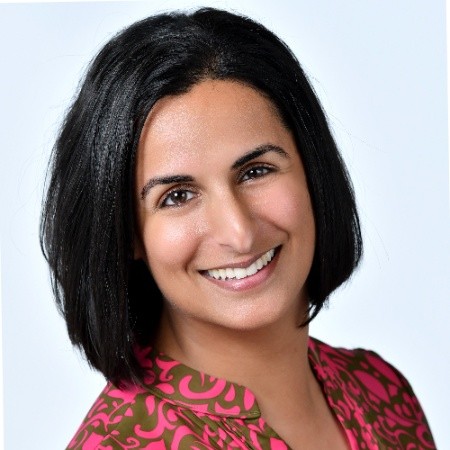 Shereen Kassam graduated from Brown with a double concentration in Economics and International Relations and earned her MBA at the Wharton School of the University of Pennsylvania.
Shereen Kassam graduated from Brown with a double concentration in Economics and International Relations and earned her MBA at the Wharton School of the University of Pennsylvania.
Kassam chose Brown because it was the right balance between large state schools and small liberal arts colleges with more open-ended opportunities than an undergraduate business program. In addition to her coursework at Brown in Economics and International Relations, Kassam spent time at the London School of Economics during her spring semester of junior year. Her favorite Economics course was Economic Development because of its practicality and relevance to current events.
After her undergraduate studies, Kassam worked at Deloitte Consulting in Boston and in startup consulting, where she continued to think outside of the box, as she did at Brown. Kassam decided to pursue an MBA at the Wharton School to further build upon her analytical skills and to focus on Marketing. Kassam went on to work in management roles at Fortune 100 companies such as Amazon and Disney. Presently, Kassam is not only a Strategy Manager at Disney, but also a podcaster, comedian, and public speaker. She is the host of a top 100 Apple Podcast, “Creative Breakthrough: Jumpstart Your Creative Journey”, where she interviews successful creative leaders across entertainment, business, fashion, design, and the arts. Kassam has toured internationally as a stand-up comedian, host, and emcee on networks such as HBO and NBC. She has performed in the US, Canada, UK, Portugal, UAE, South Africa, Kenya, Vietnam, and Cambodia. With over a decade of experience in the creative industry, Kassam shares her knowledge as a public speaker on topics including creativity, work-life balance, and career planning. Kassam emphasized the importance of maximizing her undergraduate experience at Brown to find her “passion project” by going to as many club meetings, events, and performances on campus as possible.

What year did you graduate from Brown? Were you an undergraduate or graduate student?
I was a graduate student. I received my PhD in Economics Class of 2019
What were your career goals when you first started at Brown? Did they change over time?
At the time of joining Brown, my goal was to work for an institution where I could be involved in policy-relevant research. Academia would give me this flexibility, but also the International Monetary Fund and the Federal Reserve System turned out to be great options. Since I ended up at the Boston Fed, it is safe to say that my goals did not change over time.
What is your current position and what does your everyday job entail?
I am currently an Economist in the Research Department at the Federal Reserve Bank of Boston (Boston Fed, hereafter). My everyday job entails doing research on topics of my interest, which is in applied macroeconomics with the aim to better understand the design and effectiveness of stabilization policy in a low interest rate environment, and communicating this research to the community through peer-reviewed journals. Later this year, I will start to get involved in policy work for the bank, which would entail doing research on topics related to monetary policy that can help the bank president make a decision on whether to vote to increase or decrease the interest rate at the FOMC meetings. Since my research interests are in monetary policy as well, I foresee synergies between my research and policy work going forward.
How did your experience at Brown help you in your career?
I learnt all about research and monetary economics at Brown, both through coursework and my Ph.D. dissertation, all along being guided by a set of very helpful and caring advisors. My primary advisor was always very generous with his time and advice. I was very fortunate to have an opportunity to co-author with him a paper, which got published before I went on the job market. I was also accepted as a trainee of the Population Studies and Training Center at Brown, which provided resources to enable me to do quality research. I also gratefully acknowledge the funding that I received from Brown to travel to conferences to present my research and meet members of the larger Economics community. Additionally, the career fairs organized at the university provided a platform to learn about job opportunities and meet Brown alumni, which were both useful during the job search. Finally, Brown provided me with a set of smart and driven fellow graduate students, who motivated me to work hard, and I learnt a great deal from them as well.